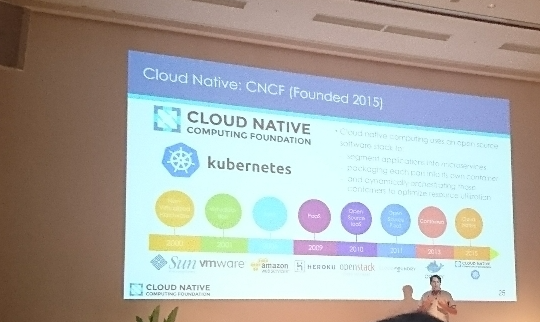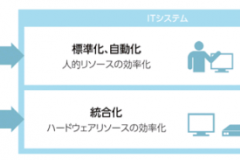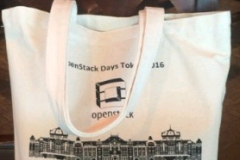
DevOps|知る×学ぶ
CNCF、全てを統べる一つのファンデーション
2017年5月31日~6月2日に開催された「Open Source Summit」の模様をレポートします。
1. レポート日本語訳 (伊藤忠テクノソリューションズ株式会社 加藤 美穂)
2. レポート原文
1. レポート日本語訳
今回のイベントはLinux Foundation主催で、LinuxConとContainerCon、さらにCloudOpenの3つのイベントが一緒になったものです。世界中から600名近く本イベントに参加しました。これらの技術間の関係性はさておき、これらのイベントを結びつけたつながりはCloud Native Computing Foundation(CNCF)にあります。
2014年のことですが、GoogleはKubernetesの最初のバージョンをリリースしました。その当時、コードはGoogleの技術者がすべてコミットしていたのです。
GoogleはすぐにKubernetesの可能性を実現するためにより多い開発者とコミットする人が必要だと気付きました。そのために、Linux Foundationと会話を始め、共同プロジェクトの開始を提案しました。GoogleとLinux Foundationが決定したことは、Kubernetesだけを発展するのではなく、クラウドエコシステムの発展に貢献する他のプロジェクトも含まれていたことです。これがCNCFのもととなっており、現在ではコンテナ、監視、ログ、ネットワークに関連する10の異なるプロジェクトを支えています。
Kubernetesに関するプロジェクトで、Googleはもっとも活躍しているコミュニティメンバーであり、プロジェクト内に共有したコードは全体で42%を占めるほどです。
そういった観点ではコミュニティの大半が多くプロジェクトとかかわっているため、一つに統合されたサミットで議論されるということはとても意味があります。
Linuxカーネルのようなものでさえも、クラウドに大きな影響を与えます。レイテンシの70%は、通常、カーネルのネットワークスタックで消費されることが明らかになりました[2]。
クラウドの基盤としてのOpenStackは、その首位を保ちマーケットプレースに存在感がありましたが、セッションでは扱われていませんでした。
Kubernetesはコミュニティの統一において重要な役割を果たしてきました。しかし、この業界で唯一のコンテナオーケストレーションエンジン(COE)になりえなかったと言えます。
Mesosphere社からは、いくつかのセッションでアーキテクチャとアプローチ方法について説明がありました[3]。 Mesosphere社の顧客には、TwitterやeBay、AirBnBも含まれています。
一方、マイクロソフトでは、開発しているコンテナソリューション(ACS)[4]のCOEとしてKubernetesを自動的にインストールしています。
マイクロソフトはオープンソースコミュニティ内で長い道のりを歩んできましたが、現在はGithubの世界最大のオープンソースコミッターなのです[5]。
fluentdにおいては1日限定で「fluentd ミニサミット」を開催しており、強い存在感がありました。
もともとfluentdは日本人によってTreasure Dataを創設、現在はCNCFに寄付されており、CNCFのエコシステムの標準的なログ収集ツールになっています。
Treasure Dataは、今日、Fluentbitと呼ばれるライトなマイクロサービスベースのバージョンを開発しています。Fluentdの1インスタンスあたり数100MBのメモリかかりますが、fluentbitなら数100KBのメモリだけで足ります。データを収集するためにfluentdのマスターがプロビジョニングされます[6]。
今回のサミットは、複数のトピックについて面白いセッションがありました:コンテナ(OCI)を標準化するための新しいイニシアチブ、Apache Thriftデータセンター機器の間の通信の効率性(RESTやgRPCの代わりに)、NFV開発のOPNFVの役割・・などなど。
この新しく作られたオープンソースサミットの存在は、わたしたちがクラウドの世界に住んでいると認識させてくれます。
また、コミュニティに関わり、テクノロジーの動向を最新のものにしていく良い機会です。
私、個人的には、ここからどのように進化を遂げていくのか、楽しみで仕方がありません。
2. レポート原文
This new event from The Linux Foundation was created as a merge of three other events: LinuxCon, ContainerCon, and CloudOpen, and attracted around 600 people from all over the world. Apart from the obvious relations between technologies, the underlying connection that brought them all together was their importance in the Cloud Native Computing Foundation (CNCF).
Back in 2014 Google completed and pre-released their first version of Kubernetes. At the time the code was 100% committed by Google engineers. Google quickly realized that they would need more eyes if Kubernetes was ever going to realize its full potential, so they started conversations with The Linux Foundation to donate the project to them.
What Google and The Linux Foundation decided was to make something bigger than just Kubernetes, hosting not only Kubernetes but also other projects committed to the evolution of the cloud’s ecosystem. That was the origin of the CNCF, and nowadays it hosts 10 different projects related to containers, monitoring, logging, networking… In the Kubernetes project, Google is one more member of a thriving community, and their code amounts to 42% of the total.
In that context, the joint discussion of all those topics in one centralized summit makes a lot of sense, as a large part of the community is already involved with many of them. Even something like the Linux kernel has a big impact on the cloud, as it was revealed that 70% of the latency is typically spent in the kernel’s network stack [2]. OpenStack, as the supporting layer of the cloud, has its own summit and thus it was present in the market place area, but not directly treated in the sessions.
It’s fair to say that, while Kubernetes has played a key role in the unification of the community, it was not the only Container Orchestration Engine (COE) in town. Mesosphere explained its architecture and approach in a few interesting sessions [3]. Among their users they can count Twitter, eBay, and AirBnB.
Microsoft, on the other hand, automatically installs Kubernetes as its COE of choice for its container solution (ACS) [4]. They have come a long way in the Open Source community, and they are now Github’s largest open source committer in the world [5].
Fluentd also had a strong presence, with a dedicated one-day “fluentd mini-summit”. Originally a Jap-anese conception by Treasure Data, it was donated to the CNCF and is now the standard logging tool of its ecosystem. Treasure Data is nowadays developing a lighter, micro-service based version of it called fluentbit (taking hundreds of KB of memory instead of hundreds of MB per instance, with a fluentd master to collect the data) [6].
All in all there were many interesting sessions about many topics: the new initiative to standardize containers (OCI), the efficiency of Apache Thrift to interconnect data center machines (instead of REST or gRPC), OPNFV and its role in NFV and MANO development…
The existence of this newly formed Open Source Summit serves as a further acknowledgement that we live in a cloud world. It’s a good time to get involved with the community and stay up to date with the technology trends, personally I’m excited to see how it all evolves from here.





